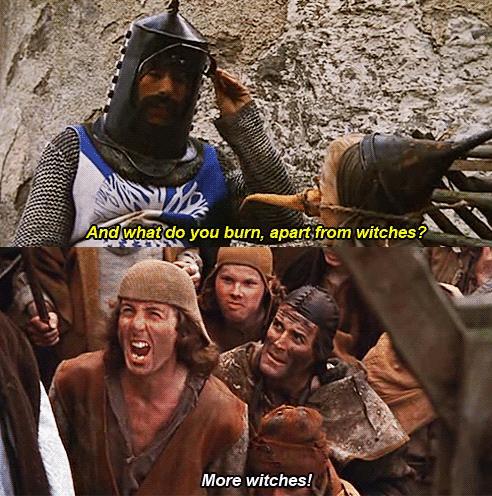Muck
Enjoy Every Sandwich
Economist
Scientists in the dock
L'Aquila quake: Italy scientists guilty of manslaughter
The Italian system's contempt for its scientists is made plain by the guilty verdict in L'Aquila.
The deeper issues behind Italy?s conviction of earthquake scientists
Don't blame Italian seismologists for quake deaths
Earthquake predictions and a triumph of scientific illiteracy in an Italian court
Scientists in the dock
BBCON MARCH 31st 2009 Bernardo De Bernardinis, then deputy chief of Italy's Civil Protection Department, told people in and around the medieval Italian city of L'Aquila that a series of tremors which had been felt in the area over the past four months posed ?no danger?. Speaking to a journalist from a local television station, he said that ?the scientific community continues to confirm to me that in fact it is a favourable situation, that is to say a continuous discharge of energy.? Six days later L'Aquila and several surrounding villages lay in ruins. An earthquake of magnitude 6.3 had destroyed thousands of buildings and killed 308 people.
Dr De Bernardinis, an expert on floods, made his comments just before a meeting held in L'Aquila in which he and six other scientists and engineers were called upon to analyse the risk posed by the ongoing swarm of tremors. The seven, a mixture of full and acting members of the Civil Protection Department's national commission for the forecast and prevention of major risks, have since been indicted for manslaughter and their trial starts on September 20th. The prosecution contends that Dr De Bernardinis's comments and others made by Franco Barberi, a volcanologist who is the commission's vice-president, at a press conference immediately following the meeting gave undue reassurance to the public that a major quake was not on its way and that, as a result, some people who would otherwise have left their homes following two tremors on the night between April 5th and 6th remained indoors and perished.
.../cont/...
L'Aquila quake: Italy scientists guilty of manslaughter
Nature.../snip/...
The seven - all members of the National Commission for the Forecast and Prevention of Major Risks - were accused of having provided "inaccurate, incomplete and contradictory" information about the danger of the tremors felt ahead of 6 April 2009 quake, Italian media report
In addition to their sentences, all have been barred from ever holding public office again, La Repubblica reports.
.../snip/...
The Italian system's contempt for its scientists is made plain by the guilty verdict in L'Aquila.
WaPo"I'm not crazy. I know they can't predict earthquakes," the Italian public prosecutor Fabio Picuti told Nature last year. He was speaking as the manslaughter trial began in the ruined town of L'Aquila of six scientists and one government official for their alleged role in the deaths of 309 people in the quake of April 2009 (see http://www.nature.com/uidfinder/10.1038/477264aNature 477, 264-269; 2011). On Monday evening, the seven were found guilty and sentenced to six years in prison (see Nature http://doi.org/jkp; 2012). The verdict is perverse and the sentence ludicrous. Already some scientists have responded with warnings about the chilling effect on their ability to serve in public risk assessments.
Even Picuti was surprised. He had requested a prison term of four years. "We'll have to read the judge's motivations to understand why," he said. Under Italian law, judge Marco Billi has up to three months to reveal his reasoning.
.../cont/...
The deeper issues behind Italy?s conviction of earthquake scientists
New ScientistAn Italian court this week sentenced six scientists and former government official to six years in prison and $10.2 million in court costs and damages, convicting them of manslaughter for giving what the court described as a falsely reassuring statement in advance of an earthquake that killed 309 people.
The quake, which hit the town of L?Aquila in 2009, came after the geophysicists told city officials on a risk-assessment commission that they were unable to make a detailed prediction about whether ongoing tremors might indicate a coming disaster. The court seems to consider this akin to criminal negligence, which as many observers have pointed out fundamentally misunderstands how seismology works. One of the convicted scientists, 74-year-old physicist Claudio Evo, called the decision "medieval?.
.../cont/...
Don't blame Italian seismologists for quake deaths
Christian Science Monitor.../snip/...
The Italian scientists were trapped by a simple yes-or-no question: "Will we be hit by a damaging earthquake?" This was not surprising given Giuliani's alarms, but it was not one they could answer conclusively. From what they knew a week before the earthquake, a big shock was not very likely: the probability of a false alarm (if an alarm were raised) exceeded the probability of a failure-to-predict (if an alarm were not cast) by a factor of more than 100. Even so, seismic activity had increased the probability of a large earthquake by a significant factor, perhaps as much as 100-fold, above the long-term average.
Distracted by Giuliani's predictions, the authorities did not emphasise this increase in hazard, nor did they focus on advising the people of L'Aquila about preparatory measures warranted by the seismic crisis. Instead, they made reassuring statements that were widely interpreted to be categorical.
.../snip/...
Earthquake predictions and a triumph of scientific illiteracy in an Italian court
Insanity.Rarely since a Catholic inquisition in Rome condemned Galileo Galilei to spend the remainder of his days under house arrest for the heresy of teaching that the Earth revolves around the sun, has an Italian court been so wrong about science.
.../cont/...




